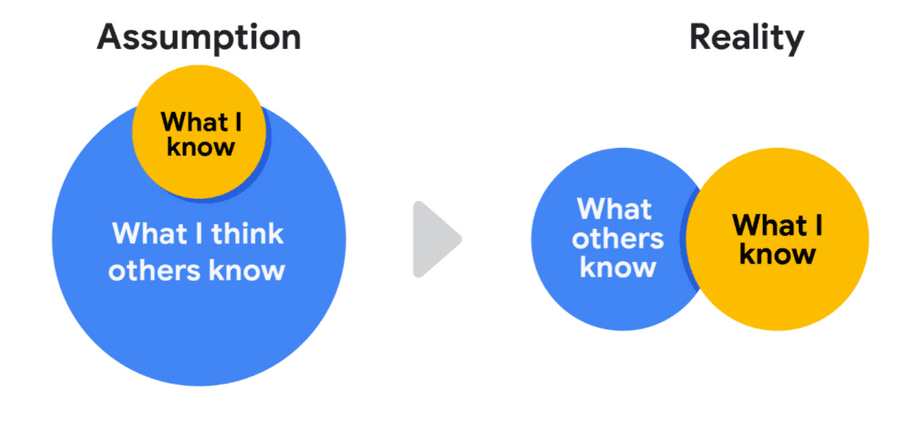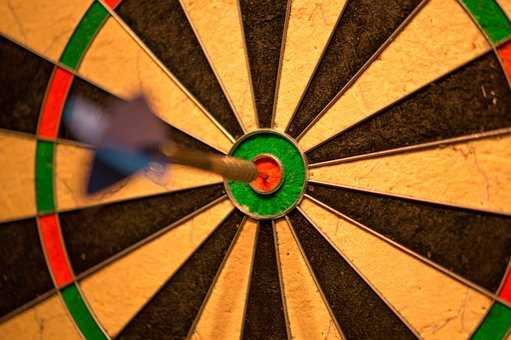The 5 Types of Imposter Syndrome (And How to Overcome It!)
Curated from: scienceofpeople.com
Ideas, facts & insights covering these topics:
11 ideas
·64.4K reads
225
9
Explore the World's Best Ideas
Join today and uncover 100+ curated journeys from 50+ topics. Unlock access to our mobile app with extensive features.
Impostor Syndrome
Impostor syndrome is a psychological phenomenon in which you feel like you don’t deserve your accomplishments. You might feel like you don’t belong, don’t deserve your success, or are “out of place.” You might even be constantly worried others will expose you as a fraud.
People with impostor syndrome are unable to internalize success.
It can affect anyone—from professionals to students to highly accomplished and successful people.
1.18K
10.3K reads
The Perfectionist
It is a type of imposter syndrome that focuses on how something should be done—they want 110% from any project or assignment, each and every time. When these standards aren’t met, however, impostor syndrome kicks into gear.
Impostor Fix: To overcome your perfectionism, try the “Good Enough Quality” Method. It’s better to hand in something that’s good rather than strive for the best. Perfectionists want to spend more time preparing, so you’ve got to break that cycle with action.
1.23K
7.71K reads
The Natural Genius
This is the equivalent of a fixed mindset. Natural geniuses think they should always be smart, be fast learners, or excel at everything they’re taught.
They have a tendency to look at the pros in their field and wonder: _Why am I not there yet? _They often don’t realize there’s a mid-stage process called learning that takes beginners to the pro level, so when faced with setbacks, they usually question their own competency.
Impostor Fix: To overcome your genius complex, try cultivating a growth mindset - the belief that with effort, you can improve your abilities, skills, and talents.
1.27K
6.68K reads
The Expert
Experts strive for more—more knowledge, more experience, and more awards. Experts strive to be perfect because they want to please others. They feel like an impostor because there’s always someone better out there.
Impostor Fix: Experts should recognize there’s never an end to knowledge! So instead of always accumulating more knowledge/skills, try to accumulate them only when needed. This means focusing 100% on accumulating one skill instead of dividing your attention to learn everything.
1.19K
6.08K reads
The Rugged Individualist
The Rugged Individualist believes they can do everything themselves and prefers to do things without asking for help. They believe asking others is a sign of weakness.
Impostor Fix: The problem of not asking others may be because you haven’t found the right people. Ask yourself: “Who are the top 5 people I spend the most time with?” If they are dream builders and not dream crushers, then you’d naturally want to learn from them.
1.16K
5.65K reads
The Superwoman/Man
The Superwoman or Superman loves to take on more responsibility. They have a hard time saying no and often work harder than their peers. A superwoman or superman often juggles many tasks at once, even to the point of over-exhaustion.
Impostor Fix: If you’re running in super mode, you’re almost always also a people pleaser. You want to impress, and taking on extra responsibility is your idea to get there. You have to understand why this happens and interrupt this cycle.
1.13K
5.14K reads
Deal With Impostor Syndrome: The Coué Method
This is a way to change your self-talk to guide your own thoughts, feelings, and behaviors:
- Choose an anti–impostor syndrome phrase - a positive affirmation or your own personalized phrase that helps you break out of impostor syndrome. I.e: "I got this!"
- Choose your safe space where you’re free from distraction.
- Choose a mental image. Every time you think of this image, you’ll be reminded of your own unique expression. Repeat your phrase while visualizing your image. Try this for just a couple of minutes twice a day.
In time, your brain will become more hardwired to believe your own thoughts.
1.23K
4.76K reads
Deal With Impostor Syndrome: “Go Mad” for 30 Minutes
Get a piece of paper and a pen and write down everything about you that you are trying to hide: your most ridiculous beliefs, the worst parts of your character, and all the things about you that make you feel like a fraud.
While this exercise won’t help get rid of these bad things, externalizing them can help you put them into perspective and feel better about them. It will feel like a weight off your chest.
1.26K
4.78K reads
Keep a Success File
Writing therapy has proven to be a great remedy for impostor syndrome.
- When you are feeling those self-doubts, you can pull out a journal and write about 5 things you are grateful for. Or take a screenshot and save the picture in a folder labeled “Success File.”
- You can also capture your proudest moment of the day or any small wins you’ve accumulated. This gets those positive juices flowing.
- When you’re trying to make progress with your impostor syndrome, you could also have a file for uplifting things. Write about what other people have said about you and records of your accomplishments.
1.21K
4.06K reads
Digital Detox
If you’re constantly checking social media, you may be unfairly comparing yourself to others.
A digital detox is when you unplug and get off social media and email for some time—say, 10 days. You can do it from home or even on vacation if you’re a remote worker.
After coming back from a digital detox, you might notice you compare yourself to others less and feel happier.
1.08K
4.27K reads
The Opposite of Impostor Syndrome: The Dunning-Kruger Effect
The Dunning-Kruger effect is when you think you already “know” everything or brush off other people’s advice. People who experience the Dunning-Kruger effect are super confident and even arrogant—but the fact is we’ve all probably experienced this effect at times.
For example, an engineering student may decide to skip studying for a test because they think they already know the answers—only to fail miserably since they were underprepared.
1.1K
4.9K reads
IDEAS CURATED BY
Jeffrey Rich's ideas are part of this journey:
Learn more about personaldevelopment with this collection
Strategies for building self-confidence
Techniques for embracing your strengths and accomplishments
Tips for seeking support and feedback
Related collections
Similar ideas
3 ideas
Everything you Need to Know About the Imposter Syndrome
productive.fish
2 ideas
10 ideas
TEN POWERFUL HACKS TO BREAK FREE FROM IMPOSTOR SYNDROME
thriveglobal.com
Read & Learn
20x Faster
without
deepstash
with
deepstash
with
deepstash
Personalized microlearning
—
100+ Learning Journeys
—
Access to 200,000+ ideas
—
Access to the mobile app
—
Unlimited idea saving
—
—
Unlimited history
—
—
Unlimited listening to ideas
—
—
Downloading & offline access
—
—
Supercharge your mind with one idea per day
Enter your email and spend 1 minute every day to learn something new.
I agree to receive email updates











